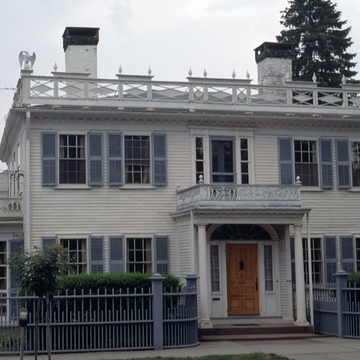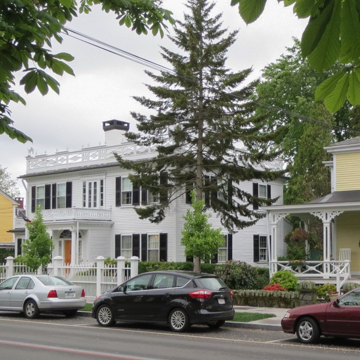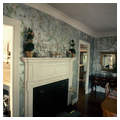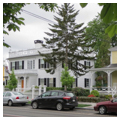You are here
John Howe House (The House with the Eagles)
Like so many of Bristol's finest houses, “The House with the Eagles” is a taut and simple Federal box that has been animated with superb architectural woodwork. Originally built by the lawyer John Howe, a descendent of the influential DeWolf family, it passed to ship captain Benjamin Churchill in 1822. According to local legend, Churchill gave the house its name by having the sailors of his ship, the Yankee, carve four American eagles, which he placed at the corners of the Chippendale balustrade that crowned his roof.
Churchill's tenure was brief, and in 1825 the house passed to Byron Diman, a powerful merchant with interests in whaling, banking, and the local cotton mills who served as governor of Rhode Island in 1846–1847. While Diman repeatedly altered and expanded his house, he maintained its essential Federal character, the hallmark of Bristol's conservative elite.
Writing Credits
If SAH Archipedia has been useful to you, please consider supporting it.
SAH Archipedia tells the story of the United States through its buildings, landscapes, and cities. This freely available resource empowers the public with authoritative knowledge that deepens their understanding and appreciation of the built environment. But the Society of Architectural Historians, which created SAH Archipedia with University of Virginia Press, needs your support to maintain the high-caliber research, writing, photography, cartography, editing, design, and programming that make SAH Archipedia a trusted online resource available to all who value the history of place, heritage tourism, and learning.



















